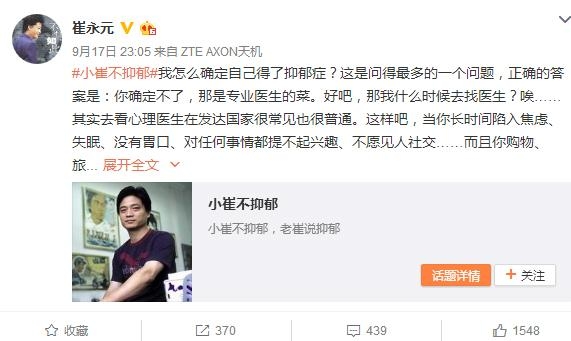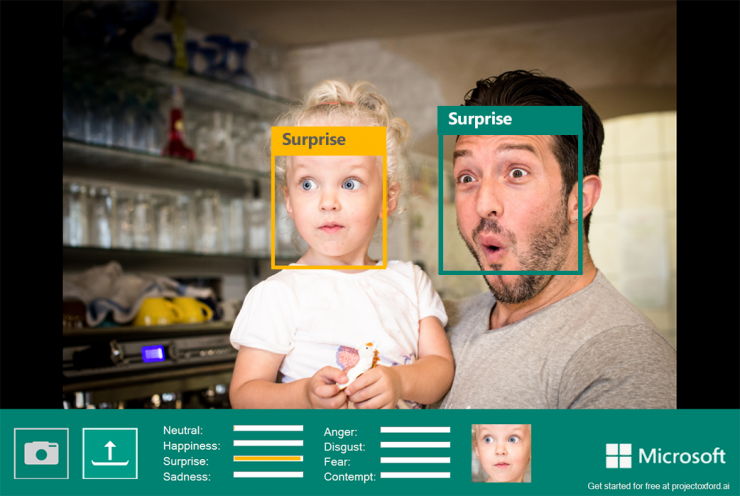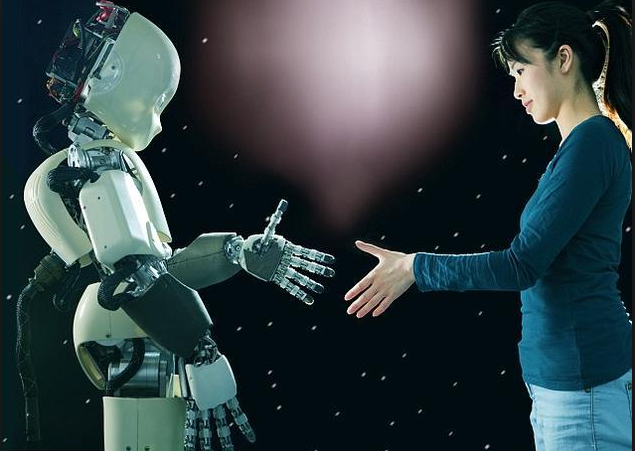Recently, the death of a singer and actress Qiao Renliang, who is only 28 years old, has triggered widespread concern about depression. For a time, the major social networks such as Weibo continued to focus on the topic of depression. From San Mao, Hemingway, to Leslie Cheung and Qiao Renliang, how many people have suffered from depression.

If you do not experience it personally, it may not be easy for ordinary people to experience the pain of depression. So, can omnipotent AI help?
This year coincided with the 60th anniversary of the birth of artificial intelligence. With the continuous development of AI technology, there seems to be nothing that it cannot do. In recent years, artificial intelligence has made great progress in understanding human emotions, and sometimes even understands your heart better than the people around you.
Identify human emotions
Artificial intelligence is mimicking humans in many ways: thought, speech, and sports. The machine is more and more like a person. This is exactly what the Turing test means - can the machine use its own thinking to deceive mankind?
How to make artificial intelligence more understand human emotions is an important part of the Turing test. SRI International Laboratories is doing this kind of work. Here is the birthplace of Siri, researchers hope to be able to develop more smart phones and chat robots that can experience human emotions.
Allowing robots to "secondarily understand" people's minds has always been the main direction of artificial intelligence efforts. SRI International Laboratories is just one of many organizations that have worked hard for the dream of the Internet. However, human wisdom is tens of millions. Even if all knowledge from the past to the present is stored on the chip, robots still need to learn to communicate in order to realize their value. The primary task in communication is to identify human emotions.
SRI Labs has made some progress in face recognition technology. When you play the game, they can detect changes in facial expressions and find out if you are tired of the game from a certain level. The technology can also be used in other contexts, for example, to see the audience's emotional changes during speech training.

The technology, called SenSay analysis, predicts the emotions they want to express by analyzing human behaviors such as typing patterns, voice intonation, facial expressions, and body movements, and then used to adjust the machine's response. For example, a virtual assistant, when talking to a customer or face-to-face, will slow down and explain if he finds that the customer does not understand or confuse the concept. This technology can even detect human emotions - whether it is joy, surprise or sadness.
Do you understand like "Her"?

In the film “Herâ€, Samantha, an artificial intelligence operating system, not only helps the protagonist to quickly process various mails, documents, etc., but also can understand you, be considerate to you as a friend, and even fall in love with human beings.
In real life, personal assistants such as Apple's Siri, Microsoft's Cortana, Google's Google Now and other voice assistants, and more service-oriented robots are emerging. With the constant development of technology, robots are further reading human emotions and interacting more smoothly with us.
With emotional computing, AI can accurately identify user emotions through semantics, images, and speech. Understand the true intentions and needs of users through the context of natural conversations. Not only text, voice, and visual communication, but also exclusive memory, providing one-on-one exclusive personalized service, enabling users to have emotional trust and dependence on "emotional robots".
As the Internet is more and more developed, artificial intelligence has penetrated into all aspects of our lives. The minds of machines that read humans are no longer just the scenes that appear in film and television works. In the future, perhaps the robot we created can understand human emotions from multiple dimensions. By then, it may be the soulmate of our new era.
Via futurism
Recommended reading:
Thinking-controlled nanobots can release drugs in the brain that can help treat depression and epilepsy | 新智é€
Listen to you, machine learning algorithms can detect depression
Waterproof Open Close Current Transformer
Waterproof Open Close Current Transformer,Split Core Current Transformer,Outdoor Use Current Transformer,Low Voltage Outdoor Switching Current Transformer
Zibo Tongyue Electronics Co., Ltd , https://www.tongyueelectron.com